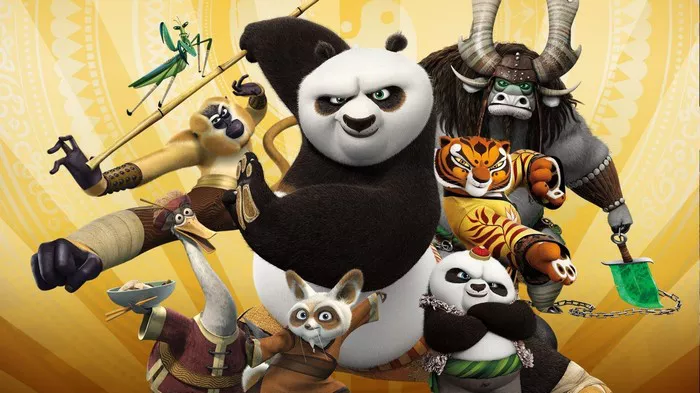“Kung Fu Panda” is undeniably one of the most beloved animated film franchises worldwide, captivating audiences with its heartwarming storylines, stunning animation, and endearing characters. However, amidst its global popularity, there has been ongoing curiosity about how the film is received in China, the birthplace of kung fu and the inspiration behind much of the movie’s themes and aesthetics. In this article, we delve into the complex relationship between Chinese audiences and “Kung Fu Panda,” exploring the factors that shape their perceptions and responses to this cultural phenomenon.
Understanding the Cultural Context
To comprehend the reception of “Kung Fu Panda” in China, it is essential to first understand the cultural context in which the film is situated. Kung fu, the martial art form that serves as the backbone of the movie’s narrative, holds deep roots in Chinese history and tradition. Originating in ancient China, kung fu embodies principles of discipline, perseverance, and spiritual enlightenment, making it not only a physical practice but also a philosophical and cultural pursuit.
The Appeal of “Kung Fu Panda”
“Kung Fu Panda” resonates with audiences worldwide due to its universal themes of self-discovery, friendship, and overcoming adversity. The endearing protagonist, Po, a bumbling panda with dreams of becoming a kung fu master, embodies the underdog archetype, making him relatable to audiences of all ages and backgrounds. The film’s stunning visuals, dynamic action sequences, and heartfelt storytelling further contribute to its widespread appeal.
The Perception of “Kung Fu Panda” in China
Despite its international success, “Kung Fu Panda” initially faced skepticism and mixed reviews from some Chinese audiences and critics. Some questioned the authenticity of its portrayal of Chinese culture and kung fu, while others expressed concerns about cultural appropriation and stereotyping. Additionally, there were comparisons drawn between “Kung Fu Panda” and traditional Chinese martial arts films, with some feeling that the animated movie lacked the grit and realism of its live-action counterparts.
Cultural Authenticity vs. Creative License
One of the primary critiques leveled against “Kung Fu Panda” by Chinese audiences is its perceived lack of cultural authenticity. While the film incorporates elements of Chinese culture, such as iconic landmarks, traditional architecture, and martial arts philosophy, some argue that it presents a sanitized and idealized version of China, devoid of historical context and socio-cultural complexities. However, others view the film’s interpretation of Chinese culture as a creative reimagining, appreciating its whimsical and fantastical approach to storytelling.
Navigating Stereotypes and Representation
Another aspect of “Kung Fu Panda” that has sparked debate in China is its portrayal of characters and cultural stereotypes. Critics have raised concerns about the depiction of certain animal characters, such as the villainous snow leopard Tai Lung, as perpetuating negative stereotypes associated with Chinese martial arts. Additionally, there have been discussions about the representation of Chinese culture through the lens of Western filmmakers and whether it accurately reflects the diversity and richness of Chinese heritage.
Cultural Pride and Global Impact
Despite the criticisms and controversies surrounding “Kung Fu Panda,” the film has undeniably contributed to a sense of cultural pride and awareness among Chinese audiences. The success of the franchise has led to increased interest in kung fu and Chinese culture both domestically and internationally, inspiring new generations to explore their heritage and traditions. Moreover, “Kung Fu Panda” has become a symbol of China’s soft power and cultural influence on the global stage, showcasing the country’s rich history and artistic contributions to the world.
Embracing the Spirit of Kung Fu
Ultimately, the reception of “Kung Fu Panda” in China is as diverse and multifaceted as the country itself. While some may critique its portrayal of Chinese culture and kung fu, others appreciate its ability to inspire and entertain audiences of all backgrounds. Regardless of individual opinions, “Kung Fu Panda” serves as a reminder of the enduring appeal of kung fu and its ability to transcend cultural boundaries. As the franchise continues to evolve and expand, it will undoubtedly leave a lasting legacy on both Chinese and global audiences, reminding us of the timeless wisdom and spirit of kung fu that unites us all.

